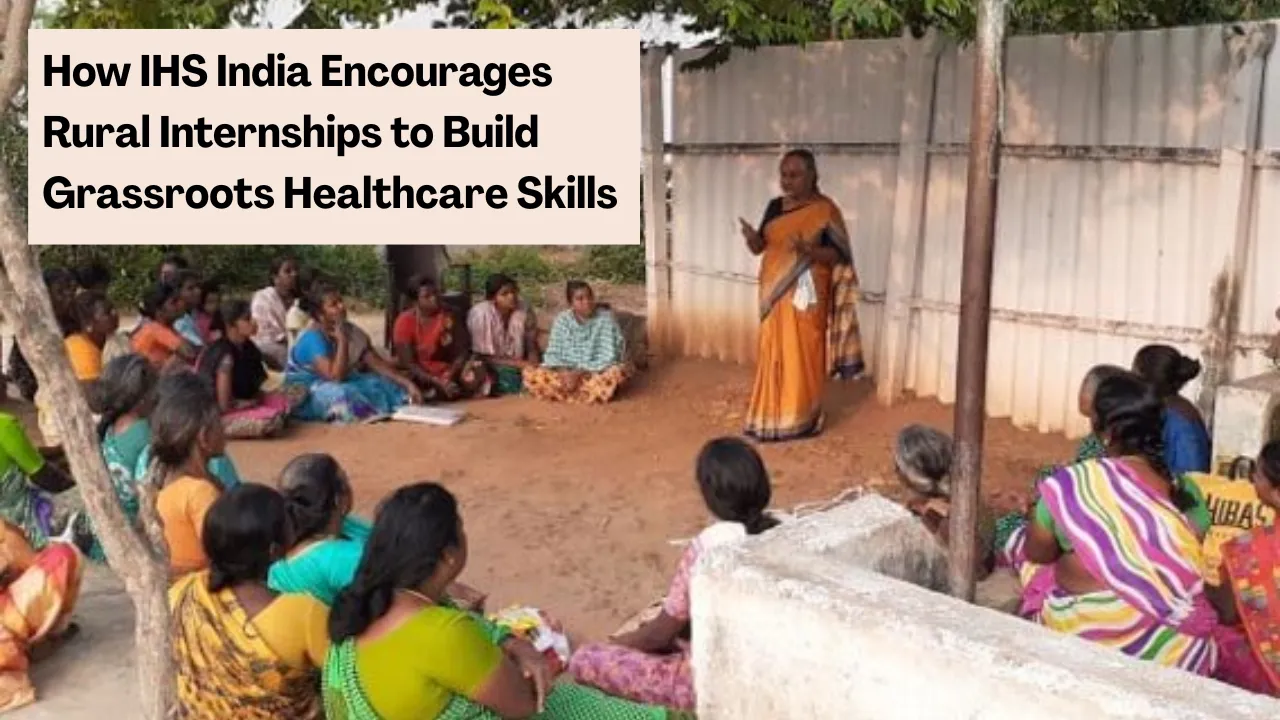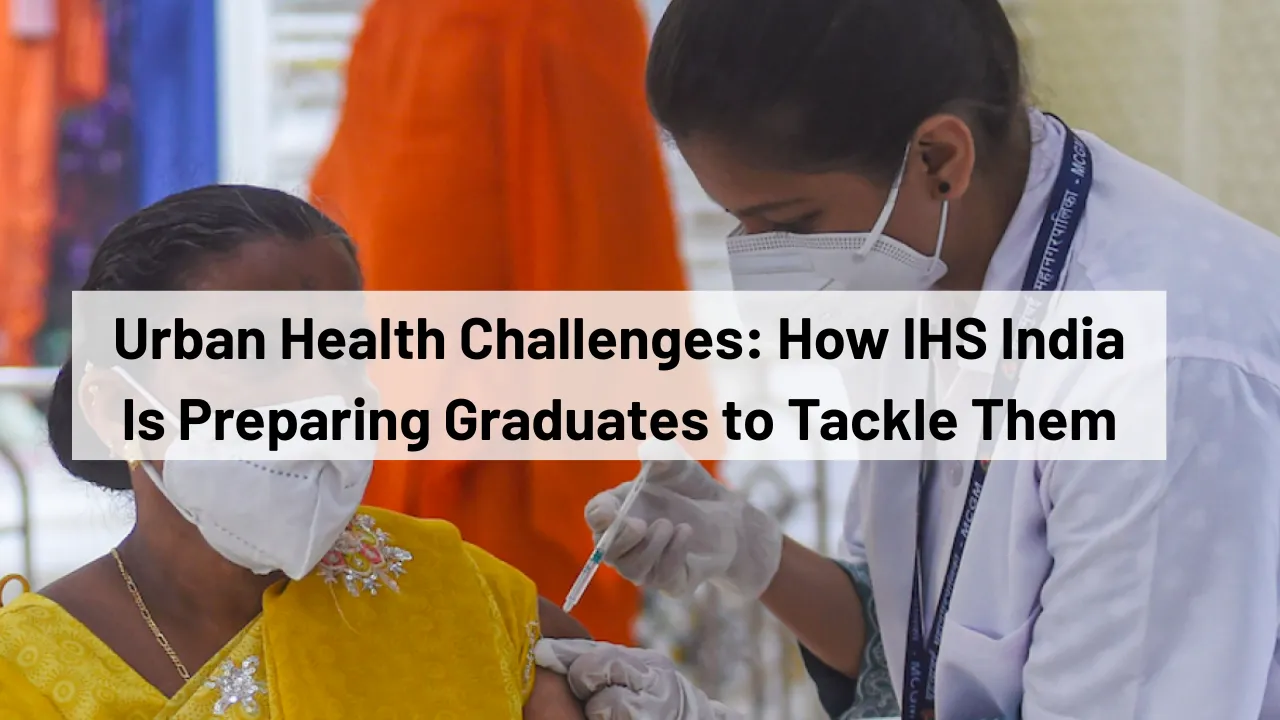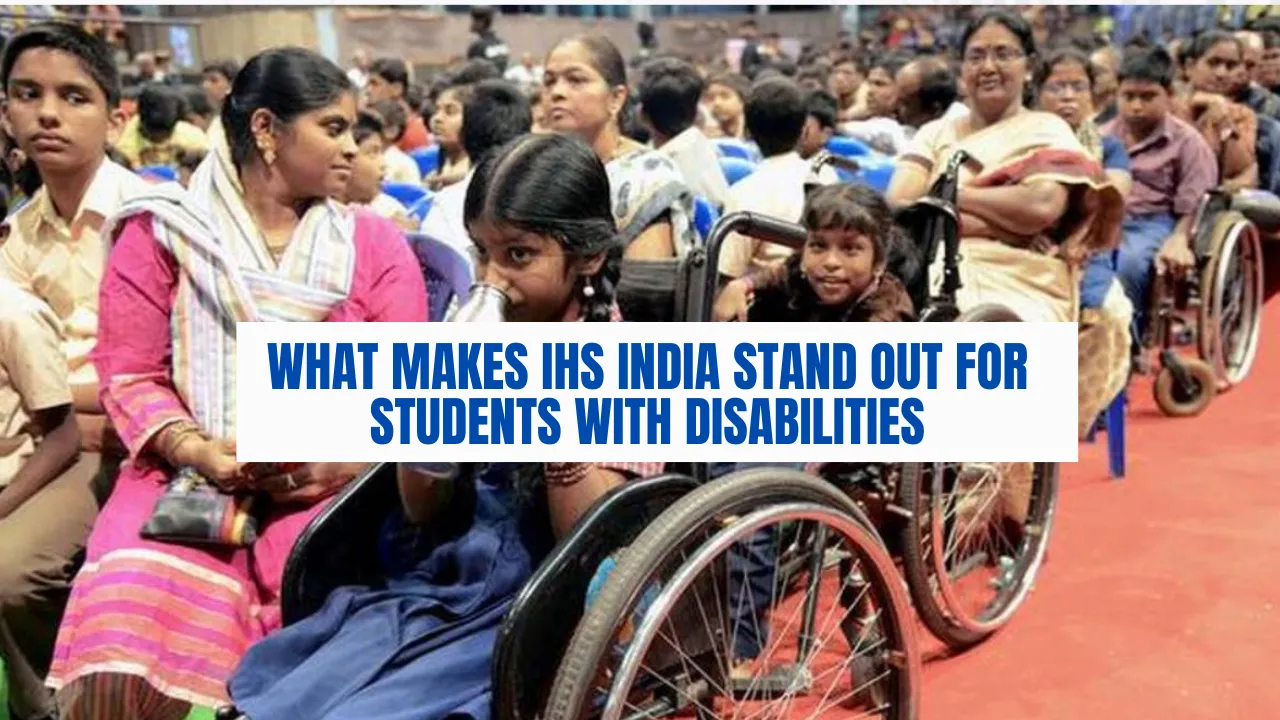IHS India’s Rural Internship Program: Healthcare in India faces a unique paradox: while urban centres are becoming saturated with state-of-the-art hospitals and specialists, rural India still struggles with basic healthcare access. The divide isn’t just about resources—it’s also about skilled personnel. To address this gap, IHS India (Institute of Health Sciences) has championed a rural internship model that sends healthcare students into the heart of India’s villages.
This hands-on initiative is more than a field trip—it’s a vital strategy for building grassroots healthcare skills, boosting student capability, and empowering underserved communities. These internships don’t just benefit patients in rural areas; they also mold the next generation of healthcare professionals into socially aware, flexible, and field-ready contributors.
IHS India’s Rural Internship Program: Building Skills from the Roots
The focus keyword “how IHS India encourages rural internships to build grassroots healthcare skills” speaks directly to the model’s dual purpose. It fosters community trust while developing student confidence in real-world conditions. Through structured placements in rural health centres, villages, and public health projects, IHS India makes field-based training a non-negotiable part of a healthcare education. These internships are designed not just to expose students to rural realities but also to equip them with essential field experience, cultural sensitivity, and adaptive clinical skills—traits often missing in purely academic training.
Overview Table
| Aspect | Details |
| Program Name | Rural Health Internship Initiative |
| Organized By | Institute of Health Sciences (IHS India) |
| Target Groups | Paramedical, Public Health, Nursing, Physiotherapy Students |
| Location | Rural villages, Primary Health Centres (PHCs), Community Clinics |
| Duration | 3 to 6 months (as part of academic requirement) |
| Primary Objective | Build grassroots healthcare skills through hands-on rural experience |
| Community Benefits | Health awareness, basic medical services, local trust-building |
| Student Outcomes | Practical learning, leadership, adaptability, cultural immersion |
The Vision Behind Rural Internships at IHS India
The rural internship initiative by IHS India is deeply rooted in the institution’s long-term vision: to produce healthcare professionals who are not only technically competent but also socially responsible. Unlike short-term outreach programs, these internships are structured to provide meaningful community engagement and long-term learning.
Students are posted in settings where they are required to work with local health workers, understand cultural norms, and navigate healthcare delivery challenges. These experiences challenge the notion that healthcare is only about diagnosis and treatment. They teach students to listen, observe, and connect.
Student Growth: Beyond the Classroom
Traditional healthcare education often focuses on labs, lectures, and hospital rounds. But true competency emerges when theory meets reality. That’s where rural internships change the game. At IHS India, students placed in remote villages get first-hand exposure to:
- Patient interaction with minimal technology and maximum empathy.
- Real-life public health concerns like maternal health, sanitation, and vector-borne diseases.
- Preventive care planning including vaccination drives, malnutrition screenings, and health education camps.
These rural settings demand critical thinking, cultural humility, and resourcefulness—skills rarely taught in textbooks but often required in real-world scenarios. The result? Confident, socially aware graduates who are ready for diverse roles in both urban and rural healthcare systems.
Community Health Impact: Mutual Growth
While students gain exposure, rural communities benefit as well. The IHS India rural internship program actively contributes to strengthening local healthcare delivery, particularly in regions that suffer from limited access to trained professionals. Interns have helped to:
- Conduct health education sessions on nutrition, family planning, and hygiene.
- Support school health programs by screening children for visual and developmental disorders.
- Assist with maternal and child care alongside ASHA workers.
- Bridge the gap between local beliefs and medical science, creating trust in formal healthcare.
Over time, such interventions boost community trust, increase healthcare utilisation, and help lay the foundation for sustainable health-seeking behavior.
Curriculum Integration and Mentorship
What sets IHS India apart is that rural internships aren’t optional—they’re integrated into the academic curriculum. From the early stages of their program, students are groomed for the realities of public health through workshops, field visits, and team-based projects.
Each student is assigned a faculty mentor and, in many cases, a local health supervisor. This mentorship ensures that students are not only applying their classroom learning but also reflecting on their experiences and receiving guidance on professional growth. Regular assessments and feedback loops further enrich the process, making internships more than just temporary placements.
Challenges and Opportunities
Deploying students into rural areas comes with its own set of challenges. These include:
- Limited infrastructure: Students often work without digital tools or modern diagnostic equipment.
- Language barriers: Especially in tribal belts or culturally distinct regions.
- Emotional burnout: Witnessing poverty and suffering firsthand can take a toll on young professionals.
But IHS India addresses these challenges with pre-placement training, ongoing emotional support, and peer-to-peer mentoring. These obstacles, instead of becoming deterrents, serve as growth milestones, preparing students for the unpredictable nature of healthcare delivery.
Moreover, the program opens the door to career opportunities in public health, rural development, and global health—fields that are now rapidly growing in both domestic and international healthcare markets.
Real Student Voices
“The rural internship taught me more than any classroom could. I didn’t just treat patients—I understood their lives.” — Meenakshi, Nursing Intern
“Initially, I was scared to be posted in a remote area, but it became one of the most rewarding parts of my training.” — Arvind, Public Health Student
These stories reinforce the value of real-world exposure. For many, the experience becomes a turning point in their careers.
Conclusion: Bridging the Urban-Rural Healthcare Divide
In a country where healthcare challenges vary wildly from city to village, IHS India’s rural internship program serves as a visionary response. It’s a blueprint for how education, service, and empathy can come together to train healthcare leaders who are ready for every terrain—from smart cities to silent villages.
If India is to achieve universal healthcare access, we need professionals who are not only skilled but also committed to social equity. The rural internship experience makes that transformation possible. By immersing students in the realities of underserved communities, IHS India ensures the next generation of healthcare workers are prepared, passionate, and purpose-driven.
This isn’t just an internship—it’s a movement toward inclusive and community-rooted healthcare. And for many students, it’s the start of a lifelong mission to serve.
FAQs
Q1: Why are rural internships important for healthcare students?
They help students apply their learning in real-world settings, understand public health challenges, and build soft skills like communication, cultural sensitivity, and empathy.
Q2: Are rural internships mandatory at IHS India?
Yes, they are a core part of the academic curriculum and are designed to develop both clinical and community health competencies.
Q3: Do students receive support during rural placements?
Absolutely. IHS India provides pre-placement training, mentorship, and emotional support to ensure students are prepared and guided throughout.
Q4: How do communities benefit from these internships?
Interns conduct awareness programs, assist with basic health services, and help bridge gaps in healthcare delivery in resource-poor areas.
Q5: What kind of career paths do students pursue after rural internships?
Many go into public health, community medicine, rural service, NGO work, or international development roles in health-focused organizations.







